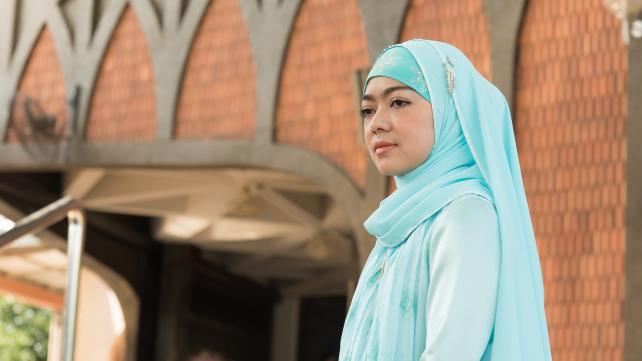
I was a junior in high school when 9/11 happened. I remember, apart from the obvious shock and horror of what happened, being baffled by my father’s caution to my mother to double check the door locks at night and to be extra careful over the next few days. He was out of town for work and it was just me, my mom, and my baby sister at home. It seemed absurd to me that the attacks could have any effect on us personally, apart from our part in the collective grief that gripped the nation. Subsequent events clearly disproved that notion, of course, and today the sinking feeling that accompanies the news of any violent attack by people with Muslim names has become depressingly familiar.
Back then I naively thought, as many of us did, that the anti-Muslim sentiment that swept the country would subside once the initial shock and horror of the attacks wore off and people regained some sense of rationality. We could never have imagined that fourteen years later, we would live in a world terrorized by ISIS, where the majority of those killed on a global scale are Muslim, and yet Muslims are being blamed and targeted as the perpetrators; where news anchors and TV personalities can go on Islamophobic diatribes with more impunity than ever before, yet a journalist can be suspended for supporting Syrian refugees on Twitter; where a man proposing Nazi Germany-style registration of Muslims can be the front-runner for the GOP candidacy for the president of the United States. It’s as if we’re living in a farcical, Orwellian dystopia.
And yet the dismal reality cannot be denied, as every week, it seems, we hear of another attack perpetrated by or attributed to Muslims, and every day we hear about more mosques being torched, more members of our communities being verbally abused, stalked, harassed, even physically assaulted. Most of the time the victims are our easily identified sisters, and I can’t deny that as a woman, this scares me a little. I’ve been wearing hijab for fifteen years, but I’ve never felt unsafe when going out in public until these last few months.
Our community has become a scapegoat for America’s fears and frustrations. We are the collateral damage of a war that serves the interests of a political elite that favors fear as a strategy to retain power, and a news media that is happy to use propaganda to boost ratings, regardless of how this incites violence against innocent people. And so now we, who just wanted to live our lives peacefully and prosperously, trying our best to follow Allah’s commands and do good to others whenever we could, are faced with the fact that we have become the most hated group of people in America.
We step outside our doors each day and feel an invisible and unearned burden of guilt attach itself to our shoulders, as if we are carrying dead bodies around with us. The weight of our sadness over these atrocities is doubled by our horror that they are enacted in the name of Islam, doubled again by the constant barrage of hatred and propaganda blasting us, the anxiety about our own safety and that of our families. Each of these things piles on top of the others until we feel we must be bent double under the strain.
How often have we heard quoted the verses of the Qur’an, “And We will surely test you with something of fear and hunger, and a loss of wealth and lives and fruits, but give good tidings to the patient; those who, when disaster strikes them, say, ‘Indeed to Allah we belong, and to Him we will return’” (2:155-6)? Many of us have them memorized; they are so familiar to us that we no longer stop to reflect on their meaning. Allah has told us in no uncertain terms that we will be tested in the most difficult of ways, with the loss of the things most dear to us, perhaps even of our lives. He clearly warned us – it was we who were unprepared.
The majority of American Muslims are first or second generation Americans. We or our parents came here for a better life than we left “back home”, reaching for that nebulous but brightly shining entity called the American Dream. We wanted to be comfortable and rich in this country, and for a while, many of us were. But this life is a test, one no generation can escape. The question is only how and when that trial will manifest in our unique circumstances. America has its own particular history of oppressing and erasing its people of color, and we are only the latest in a long line of marginalized peoples, many of whom are still struggling alongside us. (I can only imagine, for example, how hard it is in today’s world to be both Black and Muslim.) These are not separate struggles, but continuing stories in the long saga of white supremacy in this country. Orientalism has been around since the 16th century – it has merely taken on a new face in recent decades.
As a diasporic American, I have often struggled with the legacy of Native American genocide, of the implications of living in a country that was violently stolen from its indigenous people. It hasn’t been long since we finished the leftover turkey from Thanksgiving, a holiday that has always provoked mixed feelings in me. On one hand, any day devoted to gratefulness is a good thing, but on the other, how can we celebrate the symbolic last supper of our First Nations people before they were lambs to the literal slaughter?
And yet in the last few days, I have gleaned a new lesson from the story of Thanksgiving. Regardless of how historically accurate the legend is, we are told that the Natives welcomed the Europeans and shared their food with them in their first winter, when they would have starved otherwise. The fact that the Natives later paid dearly for their hospitality is a cruel irony of fate, yes.
It is also a breathtaking testament to their true generosity and greatness of spirit.
Because I don’t believe in the naïve Indian of the children’s storybooks, the ‘noble savage’ that was too sweet and dumb to realize he was being hoodwinked by the white man. I can’t imagine that the Natives didn’t understand the risk they were taking in welcoming these strangers into their homes and giving them the tools they needed to survive. But they did it anyway. They gave of themselves and their possessions with no hope of getting anything in return, taking the chance that they might be betrayed in the end.
Much has been said about American values in the last few years. Many gallons of virtual ink have been spilled on the topic of what those values are and whether Islam can or should be compatible with those values. I don’t need to add my voice to that debate, because it’s been argued well by others. As far as I’m concerned, those Native Americans displayed the real American values and the ones I want to emulate: the love and open-heartedness displayed by the true founding fathers of this land. The courage to give without calculating what they would get in return. That is our American legacy. That is how we can live in this land without betraying its ancestors or their descendants.
Muslims too have these principles in our tradition. And it is only through love and generosity and courage that we will be able to fight the hatred and lies and violence that are crippling our society today. It is only by standing tall without fear, standing up for ourselves and for every other group of people that is being oppressed besides us, that we will be able to come together and fight the hysteria that is sweeping the nation. We are all battling the same beast. So we must emerge from our protective cocoons and stand for liberty and justice for all (yes, those American values too). For African Americans who are being murdered by the police. For Native Americans who face unbelievable levels of poverty and homelessness. For Latino Americans who are being targeted and deported by racist anti-immigration legislation.
For ourselves. Because we did nothing wrong. And we do not deserve to be treated this way.
And we’re doing a pretty good job, actually. I remember in the days after 9/11, when Muslims were removing their hijabs and shaving their beards in droves, changing their names to Mo and Sammy. I don’t presume to judge them, for who am I to question the actions someone takes when they feel their safety is threatened? And yet I am proud of us today, because even though we are facing not only far more threats but an explosion of Islamophobic hate crimes, I haven’t heard even a peep about erasing our identities this time. Maybe we’ve realized that it can’t be done, that the target on our backs will always be visible to those who are looking for it. Maybe we’ve just had enough of being forced to change ourselves out of fear.
Whatever the reason, we are speaking up and speaking out, and we are not alone. For every two stories about bigotry or violence I’ve heard in recent weeks, I’ve heard a beautiful one about strangers of other faiths coming up to Muslims and offering support and love and protection. And this tells me that all hope is not lost, that not everyone is giving in to the fear and hysteria, and that we shouldn’t either. Only love and truth can overcome hatred and lies, and people all over the country, all over the world in fact, are quietly doing their part.
So lift your head, my sister, my brother. Let your shoulders shed their undeserved burden. Smile at your neighbors. Walk carefully but without fear, and do not despair. For surely, disaster has struck us. But Allah has told us that if we are patient and return to Him, good tidings are in store. And He always, always keeps His word.
© Sound Vision Foundation
Note: Please share this article using our share buttons below. However, for permission to distribute electronically or in print, please send an email to Copyrights@SoundVision.com. Thank you.


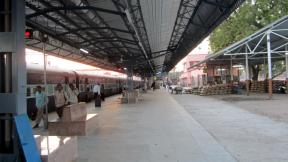
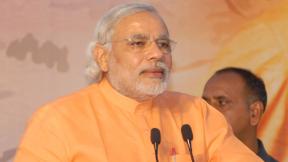
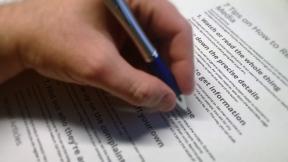
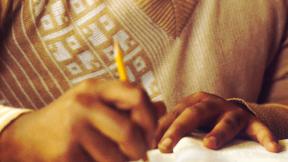


Comments
Seeking knowledge
Seek knowledge wherever you may find it. And keep an open mind so that you may find it. And when you have found knowledge keep it pure and never lose it and never abuse it. For knowledge is the greatest gift. Belief in God without knowledge is blind faith. And knowledge without action is knowledge that is useless. For what use is knowledge if it is not used for the good of all mankind. Self-knowledge is the beginning.
Location
Hold to your love.
Please hold to your love and light, and know that while there is much anxiety out there, not all Americans are hateful or fearful of Muslims. Our world, OUR world is in turmoil because of a few, and I guess the best thing we can do, ALL people, is to keep loving regardless.
I am a Christian. This is our teaching too, though sometimes bad people do bad things. I for one, cannot hate all because of a few.
Hold to you love.
Location
Add new comment